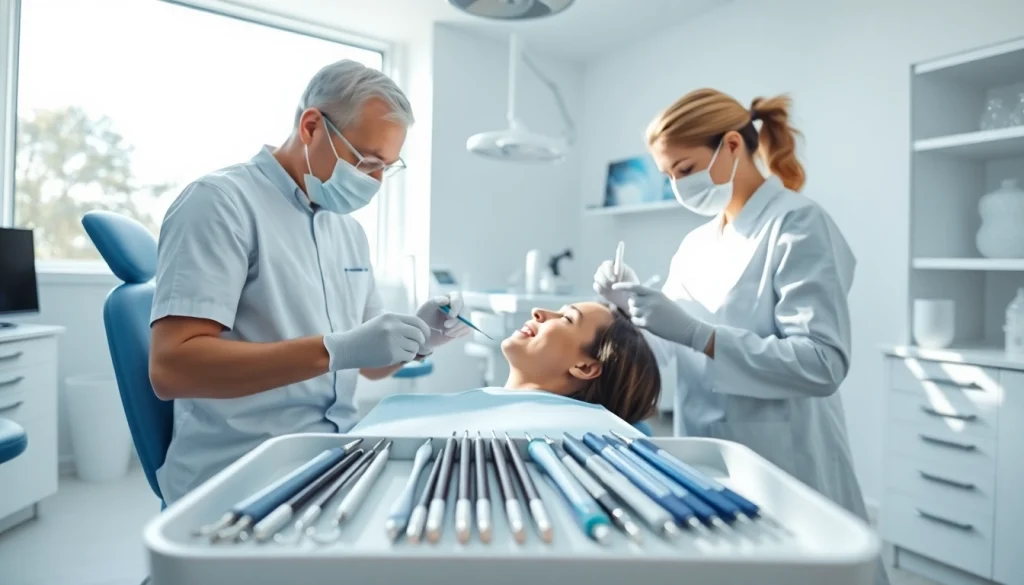What Are Dental Cleanings?
Dental cleanings, often referred to as prophylaxis, are professional oral hygiene procedures that aim to keep your teeth and gums healthy. They typically involve the removal of plaque, tartar, and stains, promoting optimal oral health. If you’re looking to maintain your smile and prevent dental issues, dental cleanings should be a vital part of your routine.
The Purpose of Dental Cleanings
The main objective of dental cleanings is to prevent oral diseases, particularly gum disease and cavities. Regular cleanings enable dental professionals to identify potential problems early, addressing them before they escalate into more complex issues. Moreover, these cleanings contribute to reducing bad breath and improving overall oral hygiene, which affects greater well-being beyond just dental health.
How Often Should You Get Dental Cleanings?
Most dental care professionals recommend that individuals visit for a cleaning every six months. However, certain circumstances might necessitate a more frequent schedule. Individuals with periodontal disease or other oral health challenges may need to have their teeth cleaned more often—usually every three to four months. Your dentist will provide personalized recommendations based on your specific dental health needs.
The Difference Between Regular and Deep Dental Cleanings
Regular dental cleanings typically cater to patients with healthy teeth and gums. This process focuses on removing plaque and tartar buildup above the gum line. Conversely, deep cleaning—often termed scaling and root planing—is necessary for patients showing signs of gum disease. This procedure cleans below the gum line, addressing the roots and pockets where bacteria can flourish, making it more intensive than a standard cleaning.
The Dental Cleaning Process Explained
Initial Assessment and Examination
The dental cleaning process commences with an initial assessment, where the dentist or dental hygienist evaluates your oral health. This examination involves looking for issues such as cavities, gum disease, and oral cancer. X-rays may also be taken if the dentist deems it necessary, providing a comprehensive view of your dental needs and forming a foundation for the cleaning process.
Removing Plaque and Tartar Buildup
Following the assessment, the next phase involves the removal of plaque and tartar. Utilizing specialized tools such as scalers, the hygienist meticulously cleans the surfaces of the teeth, focusing on hard-to-reach areas along the gum line. Plaque, a soft and sticky film consisting of bacteria, can harden into tartar if not cleaned regularly, necessitating professional intervention.
Polishing and Final Teeth Care
After plaque and tartar have been effectively removed, the hygienist will polish your teeth with a gritty toothpaste, which serves to eliminate surface stains and impart a smooth finish. Final touches may include expert flossing to ensure every crevice is clean and fluoride treatment to help strengthen enamel and combat cavities.
Benefits of Regular Dental Cleanings
Prevention of Gum Disease
One of the primary benefits of routine dental cleanings is the prevention of gum disease, which can lead to tooth loss if left untreated. Regular sessions help minimize plaque accumulation that can cause gingivitis—an early stage of gum disease. Treating gums promptly can keep them healthy and, thus, substantially reduce the chances of severe dental conditions.
Detection of Oral Health Issues Early
Dental cleanings are not only about removing build-up but also serve as an opportunity for early detection of oral health problems. Dentists can spot cavities, signs of gum disease, or even oral cancers during cleanings. Early identification allows for timely interventions, minimizing discomfort, treatment complexity, and associated costs.
Improving Overall Oral Hygiene
Beyond simply preventing diseases, regular cleanings promote overall oral hygiene. They foster a brighter, healthier smile while reinforcing the importance of maintaining oral health. Cleanings also encourage individuals to adopt better daily dental habits, such as proper brushing and flossing techniques, ultimately leading to a more proactive approach to oral care.
Types of Dental Cleanings
Basic Dental Cleanings
Basic dental cleanings are typically what most patients receive during their bi-annual appointments. This type of cleaning focuses on maintaining a healthy mouth by removing plaque and tartar from the surfaces of the teeth above the gum line. During this process, the dentist or hygienist will look for any early signs of oral disease, providing a fundamental level of care.
Deep Cleanings for Advanced Cases
When gum disease is diagnosed, a deep cleaning may be recommended. This procedure not only cleans above the gum line but also targets the roots of the teeth and the areas below the gum line, where bacteria may reside. By thoroughly cleaning and then smoothing the surfaces of the roots, deep cleanings significantly enhance gum health and contribute to the long-term stability of teeth.
Preventive Care Techniques
In addition to cleanings, various preventive care techniques can support oral health. This may include fluoride treatments, dental sealants, and personalized oral hygiene instructions. Dental sealants are thin protective coatings applied to the chewing surfaces of back teeth to prevent cavities, while fluoride treatments strengthen tooth enamel.
Common FAQs About Dental Cleanings
What to Expect During Your Visit
During your dental cleaning appointment, you will typically start with a brief interview regarding your dental and medical history. Following this, the hygienist will inspect your mouth, clean your teeth, and polish them. Post-cleaning, your dentist may take some time to evaluate your oral health and suggest any further treatments or preventive measures.
Do Dental Cleanings Hurt?
Most patients find dental cleanings to be relatively painless. However, those with existing dental issues, such as gum disease, might experience some discomfort during the cleaning process. If you’re concerned about pain, it is advisable to communicate with your dental care provider, who can provide solutions to enhance your comfort.
Are Dental Cleanings Necessary for Everyone?
Yes, dental cleanings are necessary for everyone, regardless of age or oral health status. They are vital for preventing dental diseases and maintaining optimal oral hygiene. While the frequency might vary based on individual health and risk factors, all individuals should engage with a routine dental cleaning schedule as part of their health maintenance.


